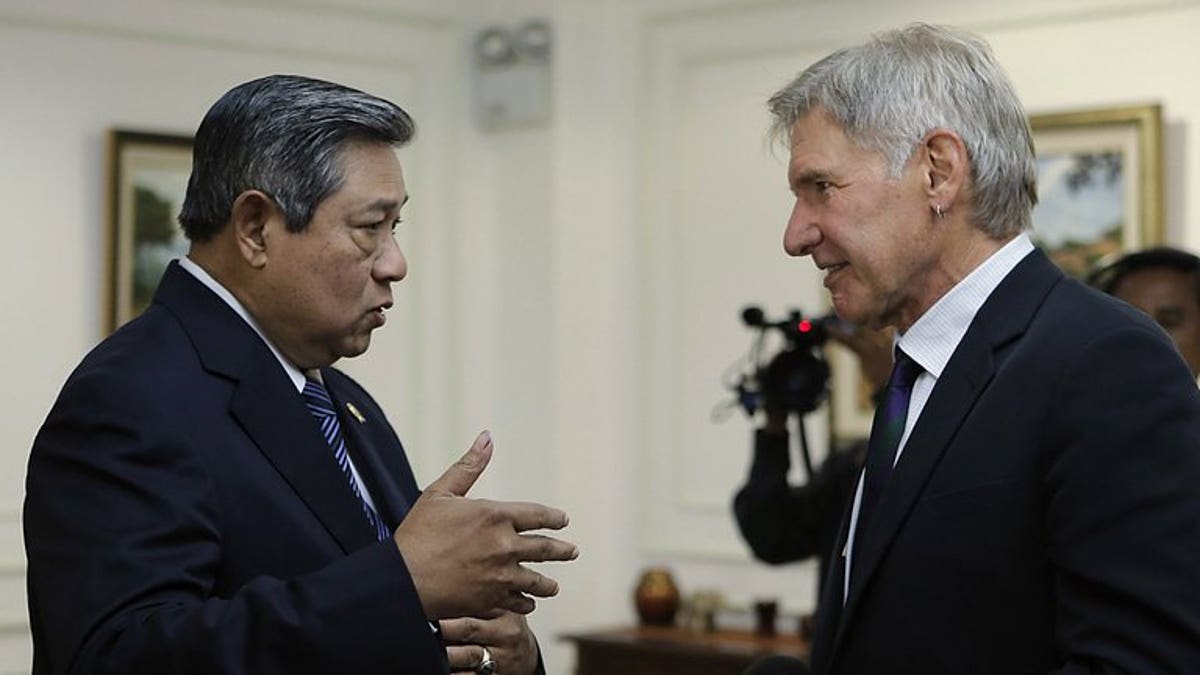
A photo released by the presidential palace on September 10, 2013, shows Indonesian President Susilo Bambang Yudhoyono (L) speaking to US actor Harrison Ford (R) during an interview at the presidential palace in Jakarta. The minister accused Ford of subjecting him to a rude interview on climate change. (PRESIDENSBY.INFO/AFP)
JAKARTA (AFP) – Indonesia's forestry minister has accused Hollywood legend Harrison Ford of subjecting him to a rude interview on climate change that left him "shocked", an official said Tuesday.
The "Indiana Jones" and "Star Wars" actor, who is making part of an environmental documentary in Indonesia, attacked the minister with questions during the encounter on Monday, said presidential advisor Andi Arief.
The advisor accused Ford and his crew of "harassing state institutions" and said the 71-year-old could even be deported -- although he was due to leave Indonesia later Tuesday anyway.
Forestry Minister Zulkifli Hasan told reporters that he had been angered by Ford's approach during the interview in the capital Jakarta.
"His emotions were running very high," the minister was quoted as saying by the state-run Antara news agency.
"I understand the American man just came here to see Tesso Nilo (a national park on Sumatra island) and wanted violators to be caught the same day."
The minister added he was not given the chance to explain the challenges of catching people who break the law in Indonesia's sprawling rainforests, where illegal logging is rampant.
"I was only given the opportunity to say one or two sentences during the interview," he said.
Arief said the minister thought there would have been some time to discuss the interview before it began.
But in the event he was "shocked that as soon as his (Ford's) crew came in, they started filming and interviewing him... and attacking him with questions".
"There's no privilege for him although he is a great a actor," he said. "His crew and those who were helping him in Indonesia must be questioned to find out their motives for harassing a state institution."
"If necessary, we will deport him," he added.
Ford, who has supported numerous environmental causes in recent years, has travelled to several places in Indonesia to make part of a series on climate change called "Years of Living Dangerously" for US television network Showtime.
He also met with President Susilo Bambang Yudhoyono on Tuesday.
As Southeast Asia's largest economy grows rapidly, swathes of biodiverse forests across the archipelago of 17,000 islands have been cleared to make way for paper and palm oil plantations, as well as for mining and agriculture.
